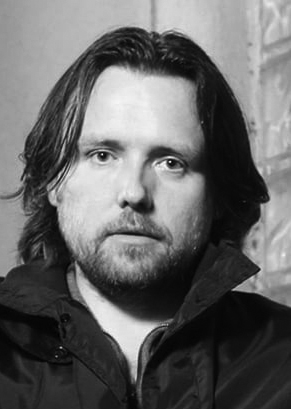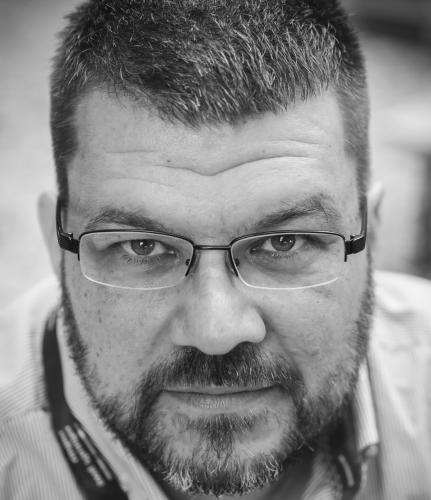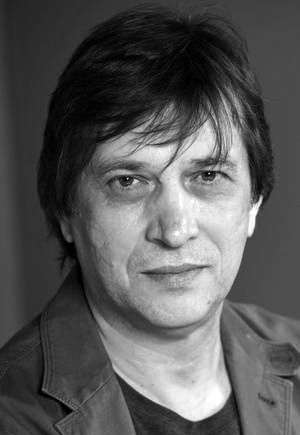When Doc and Fiction Merge (2020)
The second thematic seminar of DocNomads Academy was held for two days at the conference hall of Premier Kultcafé in Budapest under the overarching topic “The Thin Blue Line between Documentary and Fiction – When Documentary and Fiction Merge”.
The seminar was lectured by guest participants external to DocNomads staff, namely Filip Remunda a Czech director and producer, co-founder of the Institute of Documentary Film and one of the leading tutors at the Ex Oriente Film workshop, who presented his masterclass “The Docu-mentaly Trip from Czech Dream to Once Upon a Time in Poland”, and Sergey Dvortsevoy, a renowned Russian- Kazakh filmmaker working in both fiction and documentary film projects, who presented “The Art of Improvisation in Documentary and Fiction Film”, a masterclass to illustrate how reality and fiction collide in his filmmaking methods. Péter Kerekes, member of DocNomads Academic Board, served as the seminar moderator, and as film director and producer lectured his own masterclass titled “Using Documentary Methods in Fiction Film – Border between Reality and Reality in the Prison of Odessa”.
PROGRAM OF 10th FEBRUARY, MONDAY
09:00 – 13:00
THE DOCU-MENTALY TRIP FROM CZECH DREAM TO ONCE UPON A TIME IN POLAND
Everything is possible. Film is one. It does not matter whether we call it documentary or fiction. A lecture based on blending the line-up of the production company Hypermarket Film which was founded by Vit Klusak and Filip Remunda just “for the purpose of making one risky project”. Take a historical excursion through the production of the first Czech Film Reality Show – Czech Dream – and the making of the films both preceding it and following it. The initiation – Jazz War with Absent Father and Village B. How to deal with provocative concepts? How to continue to provoke but not repeat the same style again and again. Encounters with Film – you build a model of the real world, but something must happen. In The White World According to Daliborek a reconstruction of reality is presented. How can one enter the same river for the second time? Creating the life of a jazz musician from the stories of three men – Steam on the River. How to point the camera on you but not really on you – the fictional concept of Once Upon A Time in Poland. How to develop a film about a singer without him being present in the film – the documentary fictional concept of the Divine Voice.
Lectured by FILIP REMUNDA

Filip Remunda (1973) is a Czech director and producer. In 2005 he graduated from FAMU‘s documentary directing department at the masterclass of Karel Vachek. His film, Village B., was named best documentary film at the 2002 Karlovy Vary International Film Festival.
Together with Vit Klusak he directed the multi-award-winning documentary comedies Czech Dream and Czech Peace. Filip Remunda is the co-founder of the Institute of Documentary Film. He is one of the leading tutors at the Ex Oriente Film workshop and runs the independent production company Hypermarket Film based in Prague.
HYPERMARKET FILM s.r.o. is an independent film production company founded in 2003 by Vít Klusák and Filip Remunda. HMF produce mainly feature-length documentary films. For creative and ethical reasons, we do not focus on advertising. We cooperate with both award winnings and debuting filmmakers from the Czech Republic and abroad and cooperates with TV channels as well as with a number of independent film productions companies from Europe.
14:00 - 18:00
USING DOCUMENTARY METHODS IN FICTION FILM – BORDER BETWEEN REALITY AND REALITY IN THE PRISON OF ODESSA
Following the transformation of the film, that started as a documentary on 4 continents and ended up as a fiction closed in several square meters between the walls of the prison in Odessa. The Censor was a concept of a documentary film about everyday life of censors, that are still working “old-school” /no computers/ in different parts of the world. Censor of the images in the fashion magazine in Saudi Arabia, censor of the Nollywood films in Nigeria, retired newspaper censor in China and censor of the letters from prison somewhere in Europe. We started to film the censor of the letters in Odessa male prison and ended up shooting a story about woman and their children in a female prison. I will show examples, how we used documentary materials and tools in creating the fiction reality
Lectured by PÉTER KEREKES

Peter Kerekes is a film director, producer and teacher. His first feature-length film was the documentary 66 Seasons (2003). Seen through several stories that unfolded between the years 1936 and 2002, the film captures 66 seasons at the popular swimming pool of Košice, Slovakia, and the same number of years in the history of Central and Eastern Europe. The film was screened at over a hundred festivals and won among others, the Best European Documentary Award at the Jihlava International Documentary Film Festival 2003, and Best Director Award at DocAviv, 2004.
His feature documentary Cooking History (2009) is a documentary film about military cooks, how their cooking changed the history. The film was in production for five years and was filmed in 11 different European countries. It was awarded at several international festivals, including the Jury Prize at Hot Docs International Documentary Festival, the Best Documentary Award at Viennale and was nominated for the Best Documentary Award at the European Film Awards.
His film Velvet Terrorists (2013) - a documentary comedy of three protagonists who opposed the communist regime in Czechoslovakia – is a Slovakian-Czech-Croatian co-production which was co-directed by Palo Pekar and Ivan Ostrochovsk. The film was honored at several festivals, including the Tagesspiegel Audience Prize at Berlin International Film Festival, 2014 and FEDEORA Award the Karlovy Vary International Film Festival, 2013.
Kerekes also produced the omnibus documentary Occupation 1968 (2018), which maps the occupation of Czechoslovakia from the perspective of 5 directors coming from 5 different countries (Evdokia Moskvina, Linda Dombrovszky, Magdalena Szymkow, Elisa Marie Scheidt, Stephan Komandarev).
As a co-producer he took part in the projects of the White World According to Daliborek (2017) by Vít Klusák and The Wind. A Documentary Thriller (2019) by Michał Bielawski.
Peter Kerekes is teaching at Academy of Performing Arts (VSMU) in Bratislava and at the DocNomads Joint Masters in Budapest.
PROGRAM OF 11th FEBRUARY, TUESDAY
10:00 – 13:00 and 14:30-17:30
THE ART OF IMPROVISATION IN DOCUMENTARY AND FICTION CINEMA
I never tell students how to make films. I share my life experiences and filmmaking practices with them to inspire them. I made only 6 films in my life: 4 documentaries and 2 fiction films. I’ve never used a script for documentaries and I often improvise during fiction film shootings. During the masterclass I will show clips from my documentaries Paradise (1996), Bread Day (1998) and Highway (1999) and fiction films Tulpan (2008) and Ayka (2018) to illustrate how reality and fiction collide in my filmmaking methods. I would like to create a dialogue during the lecture about the fine line between documentary and fiction and focus on those aspects that interest the students.
Lectured by SERGEY DVORTSEVOY

Sergey Dvortsevoy (born 1962) is a Kazakh filmmaker of Russian origin. His 2008 feature film Tulpan was Kazakhstan‘s Academy Awards official submission to Foreign Language Film category. Tulpan was Dvortsevoy‘s first fiction film; it won the Un Certain Regards Award at the Cannes Film Festival in 2008 and received several other prices at many film festivals such as: Asia Pacific Screen Awards, European Film Awards, Karlovy Vary Film Festival, Tokyo IFF.
Dvortsevoy worked as an aviation engineer before studying film in Moscow in the early 1990’s. His films immediately garnered international acclaim, receiving prizes and recognition at festivals around the world, including the nomination of Bread Day (1998) for the prestigious Joris Ivens Award at IDFA - Amsterdam International Documentary Film Festival. Dvortsevoy’s documentaries are committed to observational filmmaking. His subjects – people living in and around Russia in transition – try in their individual ways to eke out an existence. His latest fiction-film called Ayka, was premiered at the Cannes Film Festival in 2018.















